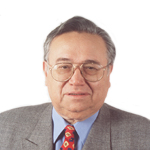Enrique Krauss | |
|---|---|
 | |
| Member of the Chamber of Deputies | |
| In office 11 March 1998 –11 March 2002 | |
| Preceded by | Jorge Schaulsohn |
| Succeeded by | Carolina Tohá |
| In office 15 May 1973 –11 September 1973 | |
| Succeeded by | Dissolution of the charge |
| Constituency | 21st Departmental Group (Temuco,Lautaro,Imperial,Pitrufquén and Villarrica) |
| Minister of the Interior | |
| In office 11 March 1990 –11 March 1994 | |
| President | Patricio Aylwin |
| Preceded by | Carlos Cáceres Contreras |
| Succeeded by | Germán Correa |
| Ministry of Economy,Development and Tourism | |
| In office 30 September 1968 –5 September 1969 | |
| President | Eduardo Frei Montalva |
| Preceded by | Juan de Dios Carmona |
| Succeeded by | Carlos Figueroa Serrano |
| Undersecretary of the Interior | |
| In office 10 August 1966 –30 September 1968 | |
| President | Eduardo Frei Ruíz-Tagle |
| Preceded by | Juan Hamilton |
| Succeeded by | Juan Achurra Larraín |
| Personal details | |
| Born | 8 January 1932 |
| Party | National Falange Christian Democratic Party |
| Spouse(s) | Gabriela Valle (divorced) Bárbara Cuadra |
| Children | Four (including Alejandra) |
| Parent(s) | Ananías Krauss Ramos Mercedes Rusque Adrián |
| Education | Líceo Manuel Barros Borgoño Instituto Nacional General JoséMiguel Carrera |
| Alma mater | University of Chile (LL.B) |
| Profession | Lawyer |
Juan Enrique Krauss Rusque (born 25 August 1932) is a Chilean lawyer and politician who has served as deputy,minister [1] and ambassador of Chile in Spain, [2] Ecuador [3] [4] [5] and Czech Republic. [6] [7]
Contents
- Political career
- Rising:1966−1989
- Concertación governments:1990−2010
- Retirement from politics:2010−present
- Trivia
- References
- External links
In 1966,Krauss began his political career working for the State,which allowed him to rise once Eduardo Frei Montalva appointed him in 1968 as Ministry of Economy,Development and Reconstruccion. From 1971 to 1975,he was a member of the national board of his party as well as national councilor of it (1976−1989). The first office aforementioned helped him to be elected for the Chamber of Deputies for the period 1973−77,which was disrupted by the coup against Salvador Allende.
Returned the democracy in Chile,in early 1990s he was the Minister of Interior of Patricio Aylwin. Similarly,he was deputy (1998−2002) and failed to reach a seat the Senate in 2001. After that,both Ricardo Lagos and Michelle Bachelet appointed him as a diplomat in South American and European countries.